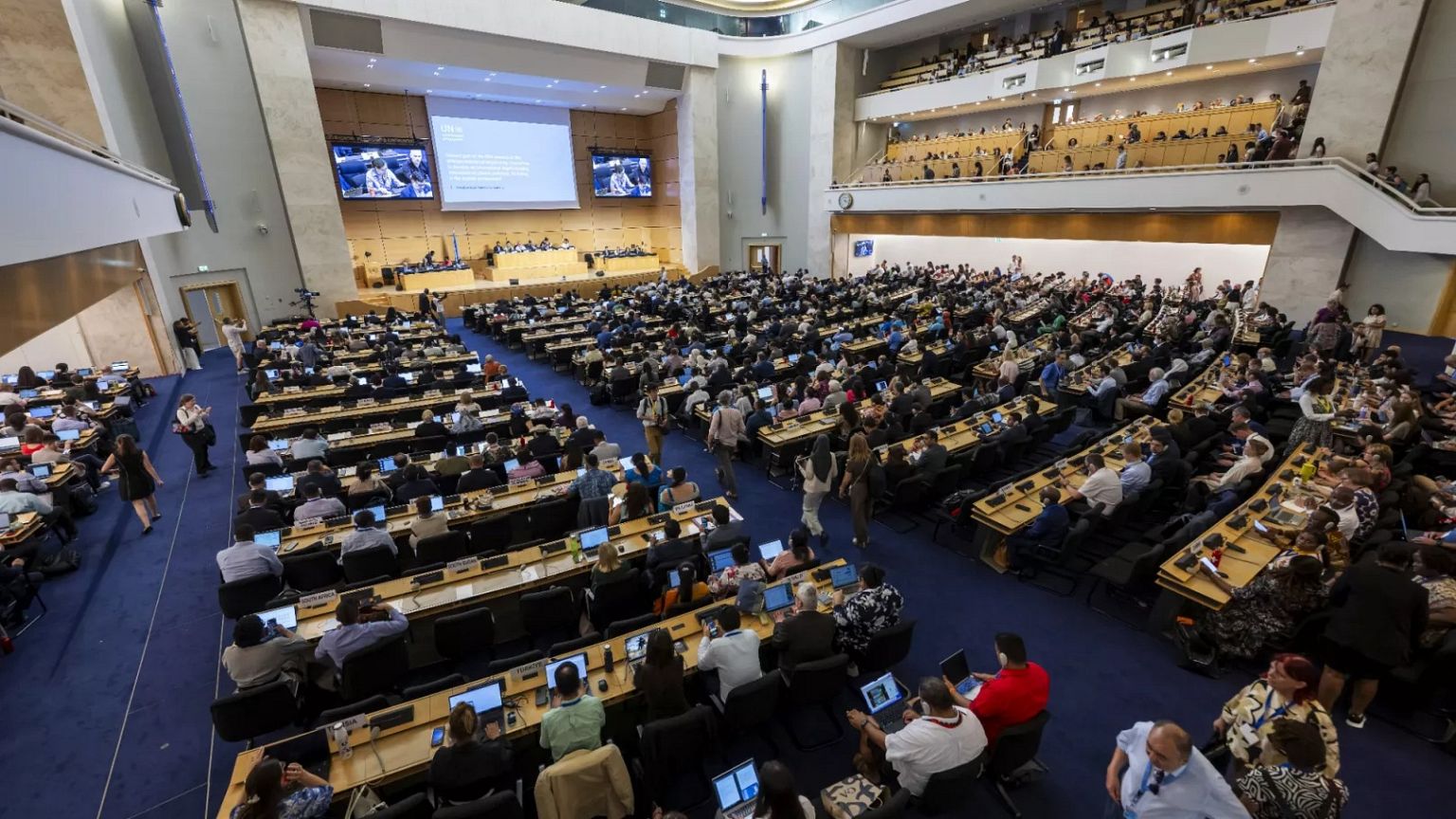Global Talks on Plastic Treaty End Without Agreement Again

Geneva — Efforts to finalize the world’s first legally binding treaty on plastic pollution collapsed in Geneva on Friday, as more than 180 nations failed to overcome sharp divisions on how to address the escalating crisis.
The 10-day summit at the United Nations headquarters, which extended into overtime, was expected to deliver a draft agreement. Instead, talks broke down when delegates could not agree on whether to use the committee chair’s draft as the basis for further negotiations, leaving the process at an impasse.
At the heart of the deadlock was the question of whether to cap global plastic production. Over 100 countries had pushed for binding limits on production and stronger measures to curb toxic chemicals in plastics. However, major oil- and gas-producing nations, including Saudi Arabia and Russia, resisted such measures, arguing the treaty should prioritize recycling, reuse, and redesign instead of production cuts.
“By missing yet another deadline to confront the escalating plastic pollution crisis, states are putting the health of people and the planet at risk,” said Sarah Baulch, senior officer at the Pew Charitable Trusts.
The negotiations, launched in 2022, aimed to tackle plastics across their entire lifecycle — from manufacturing to disposal. Geneva marked the sixth round of talks, with the process initially scheduled to conclude later this year in South Korea. But disagreements over production limits derailed progress.
Plastic production has surged in recent decades, with approximately 460 million metric tons manufactured annually. Without stronger policies, that figure could rise by 70% by 2040, according to the OECD. Despite decades of effort, less than 10% of plastics are recycled worldwide. The rest end up incinerated, in landfills, or polluting rivers and oceans.
Scientists warn that plastics break down into microplastics — particles smaller than 5 millimeters — which have been found in air, water, food, and even human organs. Studies link toxic chemicals in plastics to obesity, cancer, heart disease, asthma, and reproductive health problems.
Environmental groups expressed deep disappointment at the failure of talks. “The vast majority of governments want a strong agreement, yet a handful of bad actors were allowed to drive ambition into the ground,” said Graham Forbes, global plastics campaign lead for Greenpeace USA.
UNEP Executive Director Inger Andersen, who opened the negotiations on August 5, emphasized the urgency of finding common ground. But with no consensus reached in Geneva, the timeline and structure of future talks remain uncertain.
“This breakdown in negotiations means the plastic crisis will continue unchecked, while the world waits for the urgent action it so desperately needs,” said Erin Simon, head of plastic waste and business at WWF.
– News Agency
